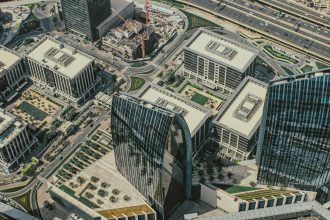Rent vs Buy: The UAE Property Decision Demystified for Expats
Rent vs buy is one of the most debated topics in the UAE real‑estate arena, especially among the expatriate community that makes up roughly 88 % of the country’s population (UAE Statistics Centre, 2023). Deciding whether to lock in a long‑term ownership stake or retain the flexibility of a rental lease involves juggling multiple variables: financial, legal, lifestyle, and market‑specific nuances. This article dissects the practical realities of each option, draws on guidance from trusted UAE authorities such as the Dubai Land Department (DLD), Abu Dhabi RERA, and the Department of Economic Development (DED), and offers a roadmap tailored to the unique needs of expats living in the Emirates.
—
Rent vs Buy: Choosing the Right Path for UAE Expats
Living in the UAE offers a vibrant, cosmopolitan lifestyle, yet the property landscape remains a complex web of rules, taxes (or the lack thereof), and cultural expectations. Before signing a contract, expats should evaluate the key dimensions that differentiate renting from buying:
| Dimension | Rent | Buy |
|———–|——|—–|
| Up‑front cost | 90‑100 % of a 12‑month rent deposit + 1‑3 months’ rent | Typically 25‑30 % down‑payment + registration, taxes, and maintenance |
| Financial risk | Low (fixed monthly rent, minimal responsibility for maintenance) | Higher (market‑value fluctuations, maintenance, vacancies) |
| Flexibility | High (easy to relocate, short‑term leases common) | Low to moderate (mortgages lock you into long‑term commitments) |
| Taxation | None (rental does not attract income tax) | No property tax in UAE, but there is a 4 % stamp duty on sales |
| Legal framework | Leased under DLD/DED or Abu Dhabi‑RERA guidelines | Ownership governed by the Land Ownership Law; freehold areas are available for foreign nationals |
With an understanding of these broad strokes, let’s delve deeper into the specific considerations that shape the decision.
—
Understanding the UAE Rental Landscape
In the UAE, rental contracts vary by jurisdiction, but most follow the framework set by the Dubai Housing Regulation (DHRC) and the Abu Dhabi Rental Law. Key points:
– Deposit: Usually 4‑5 % of the annual rent, which must be held by the lessor’s “security deposit” account under the DLD. The deposit is refundable upon lease termination, provided there’s no damage.
– Rent Index: The Dubai Rent Index (DLD) monitors market trends. As of Q3 2023, the index has shown resilience, with average rents in Dubai’s free‑hold zones hovering at AED 1,200 per 100 m².
– Tenancy duration: Short‑term leases (6‑12 months) are common; the law permits automatic renewal for an additional 12 months unless either party gives 30 days’ notice.
– Maintenance: Tenants are responsible for routine cleaning and minor repairs; landlords cover structural and major repairs.
These factors make renting an attractive option for expats who prioritize mobility and lower initial expenditure.
—
The Cost of Buying Property in the UAE
Buying a property can seem daunting due to the upfront monetary commitment, but it offers long‑term benefits:
1. Down‑payment
– Free‑hold purchases require a 25 % down‑payment for properties below AED 2 million, and 20 % for more expensive units. Some banks offer financing up to 75‑80 % of the purchase price.
2. Additional Fees
– Stamp Duty: 4 % of the purchase price paid at registration to the DLD or Abu Dhabi‑RERA.
– Processing & Administration: Typically 0.25 %–0.5 % of the price.
– Valuation Fees: AED 1,200–AED 3,000, depending on the property’s value.
3. Annual Maintenance
– Homeowners associations (HOAs) charge a maintenance fee ranging from AED 50–AED 200 per square meter per year, covering services like cleaning, security, and utilities (electricity, water).
4. Future Value
– Abu Dhabi’s property market historically outpaces Dubai’s in terms of capital appreciation, especially in free‑hold areas such as Al Ain and Khalifa City.
In 2023, the Dubai Real Estate Regulatory Agency (RERA) reported that average property prices in the free‑hold zones rose by 3.5 % from the previous year, an encouraging figure for potential investors.
—
When Renting Beats Buying: Key Considerations
Renting remains superior in specific scenarios—most commonly among expats who:
– Have a variable or short‑term contract: The average expatriate tenure in the UAE is 3–4 years. Opting to rent until an employer’s relocation or job change allows flexibility without long‑term obligations.
– Prefer to avoid maintenance responsibilities: Tenants are relieved from most upkeep tasks, reducing hidden costs.
– Need liquidity for other commitments: Keeping cash in hand may be essential for business investments, international education expenses, or unforeseen emergencies.
– Are uncertain about market conditions: With the property market’s cyclical nature, renting protects against unpredictable price swings.
—
When Buying Beats Renting: Key Considerations
Conversely, buying becomes advantageous when:
– Stability is desired: Long‑term residency or family settlement tends to favour ownership, as it provides a stable home environment.
– Investment mindset: Properties in free‑hold zones appreciate in value. For example, the Capital Markets index recorded a 4‑year CAGR of 5.8 % for residential real‑estate in major emirates (IMF, 2023).
– Rental income potential: Expats can generate additional cash flow by sub‑letting under the landlord’s permission, a common practice in Dubai free‑hold areas.
– Customization needs: Homeowners can renovate to suit cultural preferences, a privilege not afforded by rental agreements.
—
Practical Tips for Expats Considering Rent vs Buy
| Tip | Why It Matters | How to Execute |
|—–|—————-|—————-|
| Assess your visa stability | Emigrant visas typically last 2-3 years; renewing can be uncertain. | Check with your company’s HR or the immigration portal. |
| Map your budget | Up‑front costs for buying can eclipse your savings quickly. | Use online calculators from DLD or banks (e.g., Emirates NBD). |
| Explore free‑hold zones | Free‑hold areas enable foreign ownership without restrictions. | Research municipalities like Dubai Marina, Arabian Ranches, or Al Ain. |
| Read the contract carefully | Rental contracts may include hidden charges such as “shelf rent.” | Highlight fee sections; ask the agent for a glossary of terms. |
| Consider insurance | Homeowners insurance protects against property damage; renters need personal liability insurance. | Obtain quotes from UAE-based insurers: AXA, Allianz, or local providers like UAE Insurance Group. |
| Engage a licensed property consultant | Avoid scams and obtain market insights. | Verify the consultant’s license via DLD or RERA’s official site. |
—
The Role of Government Regulations and Incentives
Rental Declarations, Deposits, and Tenancy Laws
The Dubai Housing Regulation (DHRC) and Abu Dhabi Rental Law explicitly define:
– Security Deposit: Must be held in a registered account; the deposit cannot be used to pay future rent.
– Lease Renewal: Tenants have the right to renew leases at market‑adjusted rates.
– Mediation Services: Disputes between landlords and tenants are resolved via the Dubai Customer Advocacy Center or Abu Dhabi Department of Municipal Affairs and Housing.
These safeguards provide a relatively transparent and stable environment for renting, especially for expatriates unfamiliar with local customs.
Ownership Types and Ownership Laws for Expats
Foreign nationals can own properties in:
– Free‑hold zones: Any ownership duration is permitted, with the 4 % stamp duty and no annual property taxes.
– Strata (condominiums): Owners must adhere to the building’s Residents’ Association rules.
– Off‑plan purchases: Buyers in Dubai and Abu Dhabi can opt to purchase a unit before construction completes, often with staged payments. The developers typically guarantee delivery within a specified timeline.
The Dubai Land Department (DLD) and Abu Dhabi RERA publish the latest lists of approved free‑hold areas, ensuring that expats invest in legitimate, legally compliant markets.
—
Case Studies and Real‑World Experiences
| Expats’ Scenario | Decision | Key Learning |
|——————|———-|————–|
| An American software engineer on a 3-year contract | Rented a one‑bedroom apartment in Dubai Marina | Flexibility in moving to a different city post‑contract. |
| A Pakistani entrepreneur relocating permanently | Bought a 3‑bedroom villa in Jumeirah Lakes Towers (free‑hold) | Leveraged rental income during initial years as the property appreciated. |
| A South‑African marketing professional on a 5-year visa | Chose a lease in Abu Dhabi’s Yas Island | Low maintenance and the ability to relocate with a partner’s transfer. |
| A Brazilian teacher on an open‑ended contract | Purchased a condo in Dubai’s Business Bay | Created a stable family base, benefiting from the property’s long‑term appreciation. |
The diversity of these stories illustrates that there is no one-size-fits-all solution; each expat’s circumstances dictate the optimal choice.
—
Bottom Line: What’s Best for Different Expat Profiles?
| Expat Profile | Recommended Option | Supporting Rationale |
|—————|——————–|———————-|
| Short‑term contract holder (≤ 3 years) | Rent | Minimizes upfront cost, offers mobility. |
| Long‑term expat (≥ 7 years) or family settlement | Buy in a free‑hold area | Long‑term appreciation, control, and tax benefits. |
| Young professional prioritizing immediate cash flow and low maintenance | Rent, but consider sub‑leasing | Extra income while preserving flexibility. |
| Investor keen on property portfolio | Buy an off‑plan or resale property | Potential appreciation and rental yield. |
Final Thoughts
Rent vs buy in the UAE is far from a binary choice. The decision hinges on the interplay of visa status, financial resources, family needs, and long‑term goals. Expats should conduct a thorough cost–benefit analysis that includes:
1. Projected length of stay
2. Up‑front liquidity
3. Preferred lifestyle (flexibility vs stability)
4. Risk tolerance for market fluctuations
Armed with accurate, authority‑backed information, expatriates can confidently navigate the UAE’s dynamic real‑estate market, ensuring that whether they rent or buy, they do so with clarity and purpose.









